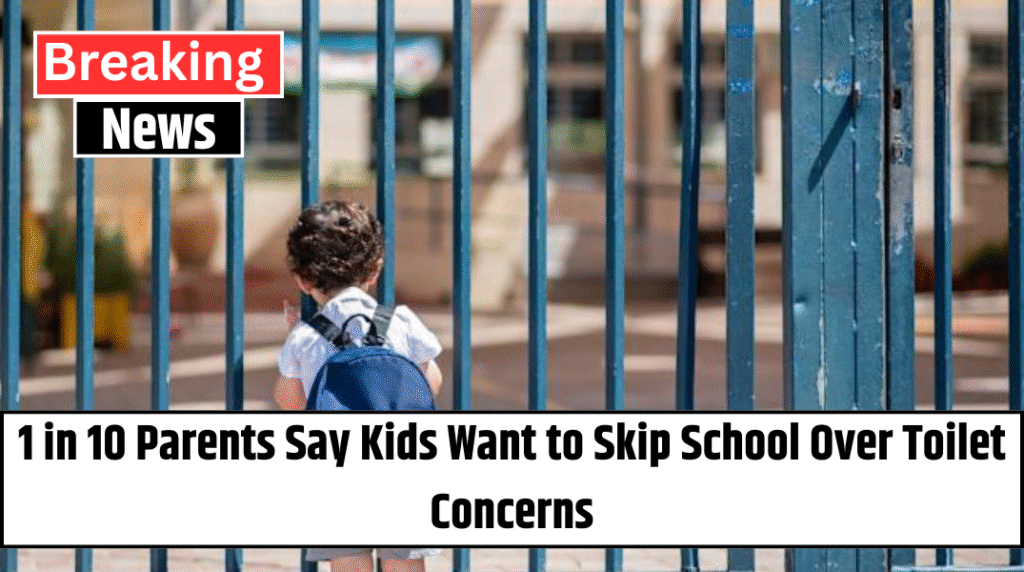A growing number of parents in the UK are expressing serious concerns over the poor state of school toilets, with some children even choosing to stay home rather than face unsanitary bathroom conditions, according to a new survey conducted on behalf of the charity Parentkind.
The poll, which included responses from 2,000 parents of school-aged children, revealed that over one in 10 parents (11%) said their child had either missed school or asked not to attend due to anxiety over using school toilets. Additionally, 17% of parents rated the cleanliness of their children’s school toilets as unsatisfactory.
Many families aren’t staying silent. Nearly a third (31%) of respondents said they had already raised complaints with school staff regarding toilet conditions. The reports are deeply concerning: some children have described the facilities as being so unclean they felt like “they were stepping into a horror movie,” while others reported sightings of cockroaches in the restrooms.
Some parents even disclosed that their children have suffered health issues — including wetting themselves or developing constipation — after trying to avoid using the toilets altogether.
Charity Calls for Urgent Government Action
Parentkind is urging the UK government to allocate more of its education budget towards upgrading school restroom facilities. CEO Jason Elsom said the situation is impacting children’s health and dignity.
Also Read – Major Expansion: 500,000 More Children to Receive Free School Meals
“With hundreds of thousands of pupils avoiding drinking water during school hours, and many suffering from preventable digestive issues, this issue goes far beyond inconvenience. It’s about the health, well-being, and self-esteem of our children,” Elsom stated.
He emphasized the need for urgent investment to make toilets “fit for use,” sharing disturbing accounts from parents whose children encountered toilets “covered in waste” and “infested with insects.”
Broader Issues Tied to School Infrastructure
The findings come shortly after the Chancellor’s pledge to invest £2.3 billion annually to repair outdated school buildings and an additional £2.4 billion annually to rebuild 500 schools. Parentkind hopes that a portion of this funding will be earmarked for toilet refurbishment, given the scale of the problem.
Pepe Di’Iasio, General Secretary of the Association of School and College Leaders (ASCL), acknowledged the severity of the issue and linked it to long-standing underfunding of school infrastructure.
“Most schools do everything they can to maintain clean, functional toilets, but many are operating in buildings that are simply too old and in disrepair. A lack of adequate funding over the years has made maintenance extremely difficult,” Di’Iasio explained.
He stressed that better investment is needed to bring facilities up to a modern standard that meets students’ basic needs.
Government Response
A spokesperson for the Department for Education (DfE) defended the government’s current strategy, highlighting that significant funds have been committed to school improvements.
Also Read – New Study Finds : UK Kids Enjoy Reading Less Than Ever
“We are committed to creating safe and effective learning environments for all students. The government has increased capital funding for schools to its highest level since 2010, demonstrating our focus on repairing and modernizing the school estate,” the DfE representative said.
The department also pointed to the School Rebuilding Programme as evidence of its long-term commitment to fixing fundamental infrastructure issues across the education system.
Looking Ahead
While the government insists it is taking the right steps, parents and advocacy groups continue to push for faster, more targeted action to tackle what they say is a critical — yet often overlooked — aspect of school life. Clean and safe toilet facilities, they argue, are not optional luxuries, but essential components of a child’s school experience and well-being .



